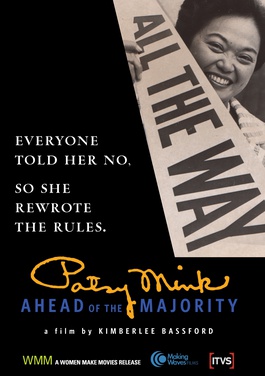Kayo Hatta was an American filmmaker, writer, and community activist. She directed and co-wrote the independent dramatic feature-length film Picture Bride, which won the Sundance Film Festival Audience Award in 1995 for Best Dramatic Film.

CAAMFest, known prior to 2013 as the San Francisco International Asian American Film Festival (SFIAAFF), is presented every March in the San Francisco Bay Area in the United States as the nation’s largest showcase for new Asian American and Asian films. It annually presents approximately 130 works in San Francisco, Berkeley and San Jose. The festival is organized by the Center for Asian American Media.
Arthur Dong is an American filmmaker and author whose work centers on Asia America and anti-gay prejudice. He was raised in San Francisco, California, graduating from Galileo High School in June 1971. He received his BA in film from San Francisco State University and also holds a Directing Fellow Certificate from the American Film Institute Center for Advanced Film Studies. In 2007, SFSU named Dong its Alumnus of the year “for his continued success in the challenging arena of independent documentary filmmaking and his longstanding commitment to social justice."
Kukan is a 1941 American documentary film co-produced by Li Ling-Ai and Rey Scott, and directed by Scott about the Chinese resistance to Japanese aggression during the early part of World War II. Though Li served as co-producer and sponsor, she was credited as a "technical advisor" in its credits.

The Center for Asian American Media (CAAM) was founded in 1980. The San Francisco-based organization, formerly known as the National Asian American Telecommunications Association (NAATA), has grown into the largest organization dedicated to the advancement of Asian Americans in independent media, specifically the areas of television and filmmaking.

Soo Yong, was a Chinese-American actress. She acted in twenty-three Hollywood films and numerous television shows, mostly in supporting roles. Among them were The Good Earth (1937), Love Is a Many-Splendored Thing (1955), and Sayonara (1957). In 1941 she married C.K. Huang.

Hinaleimoana Kwai Kong Wong-Kalu, also known as Kumu Hina, is a Native Hawaiian māhū – a traditional third gender person who occupies "a place in the middle" between male and female, as well as a modern transgender woman. She is known for her work as a kumu hula, as a filmmaker, artist, activist and as a community leader in the field of Kanaka Maoli language and cultural preservation. She teaches Kanaka Maoli philosophy and traditions that promotes cross-cultural alliances throughout the Pacific Islands. Kumu Hina is known as a "powerful performer with a clear, strong voice"; she has been hailed as "a cultural icon".

Patsy Mink: Ahead of the Majority is a 2008 documentary film that was written and directed by Kimberlee Bassford and is her first feature-length documentary film. The documentary premiered at the Hawaii International Film Festival on October 12, 2008, and was later broadcast on PBS in May 2009. It focuses on Patsy Mink (D-HI), who was the first woman of color and Asian American woman to serve in the U.S. Congress and the co-author of the Title IX gender equity legislation.

Kong Tai Heong was a trained obstetrician who was the first Chinese woman to practice medicine in Hawaii. Also certified as a midwife, she delivered babies for the Hawaiian, Portuguese and Chinese populations in Honolulu, practicing for over fifty years. In 1946, she was credited by Robert Ripley as having delivered more babies than any other private practitioner in the United States.
Finding Kukan is a 2016 feature-length documentary investigating the story of Chinese Hawaii-born producer Li Ling-Ai, the female co-producer of the film Kukan (1941).

Li Ling-Ai was a noted Chinese-American film producer, born in Hawaii, the sixth of nine children. Both her parents were first-generation Chinese immigrants who became doctors in Hawaii. Father Li Khai-Fai was a physiologist. Her mother Kong Tai Heong was an obstetrician.

The Japanese Cultural Center of Hawaii is a cultural center and history museum in Moiliili, Hawaii that focuses on the Japanese-American experience in Hawaii, especially internment.

Diane Paragas is a Filipino-American documentary and narrative film and commercial director. She is best known for writing, directing and producing the 2020 film Yellow Rose. Yellow Rose was Paragas' debut narrative feature The film was selected as the Opening Night Film of the 2019 Los Angeles Asian Pacific Film Festival. Yellow Rose won Grand Jury Prizes at LAAPFF, Bentonville Film Festival, CAAMFEST37, and Urbanworld where it also took the Audience Award. The film also won the Audience Award at the Hawaii International Film Festival.
Kimberlee Bassford is an independent documentary filmmaker from Honolulu, Hawai‘i. In 2005, she founded Making Waves Films LLC, which is a documentary production company. She advocates for gender equity and diversity in films and television. Most of her work focuses on Asian American women and young girls, and her films actively seek to correct underrepresentation of those groups in the media.
Joseph Hall Wilson is an American film director and producer, best known for documentaries and impact campaigns that explore oppression and empowerment among gender and sexual minority communities. He has received an Emmy, GLAAD Media and several film festival awards, and his work has been supported by the Sundance Institute, Ford Foundation, ITVS and Pacific Islanders in Communications.
Deborah Lum is an American documentary filmmaker based in San Francisco. Her projects frequently explore subject matters within the Asian and Asian American community.
Far East Deep South is a 2020 American documentary film about a Chinese American family's journey to search for their family roots. Instead of leading them to the Far East to a remote village in China, it took them to the deep south into the small town of Cleveland in the Mississippi Delta.

Momi Cazimero is an American graphic designer and firm owner, who established the first woman-owned graphic design firm in Hawaii.
Haunani Kahalewai was a singer and entertainer known as the "First Lady of Song in Hawai‘i". Her distinctive contralto voice spanned three octaves. She was featured on dozens of recordings and headlined the Polynesian Review at the Royal Hawaiian Hotel in Waikiki. Kahalewai was inducted into the Hawaiian Music Hall of Fame in 1996.

Calvin Hoe is a Hawaiian artisan, musician, restaurant owner, educator, and activist.










